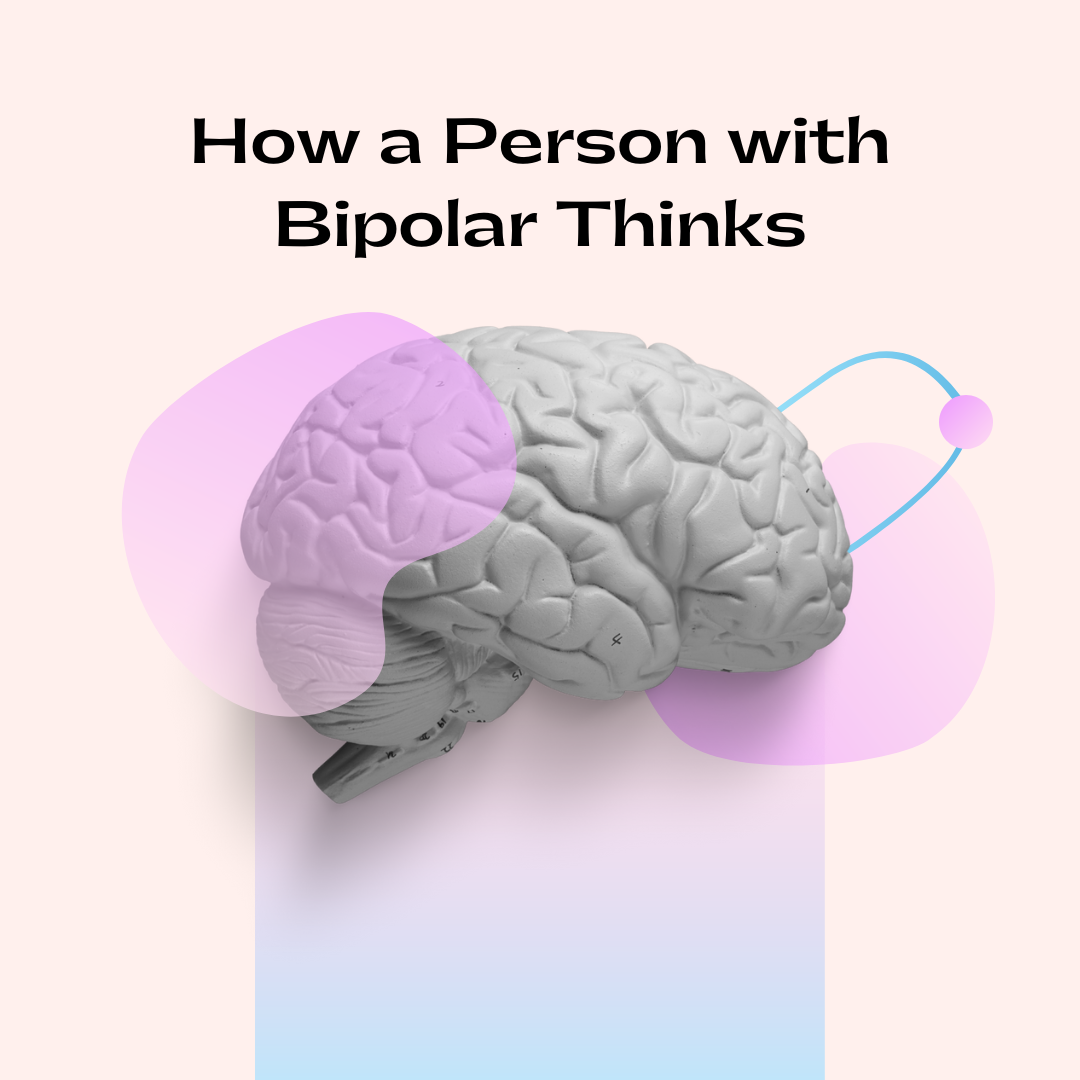Your shopping bag is empty
How a Person with Bipolar Thinks
- Posted by: Enquiry Admin
- Comments: 0
- Categories: YES Blog
Living with bipolar disorder is a journey that involves navigating through various emotional landscapes. The highs and lows can be intense and unpredictable. Exploring the intricacies of how a person with bipolar thinks sheds light on the challenges they face. It will also reveal the resilience they demonstrate in managing their mental health. In this article, we delve into the nuanced thought processes that characterize individuals with bipolar disorder, emphasizing the importance of mental health and positive affirmation in their daily lives.
The Rollercoaster of Emotions: How a Person with Bipolar Thinks
Living with bipolar disorder means experiencing extreme shifts in mood, energy levels, and cognition. It's crucial to recognize that bipolar disorder manifests differently in each individual, making it a highly personalized experience.
During manic episodes, individuals with bipolar disorder may experience heightened energy, creativity, and confidence. Their thoughts can race at an accelerated pace, leading to a surge of ideas and impulsivity. This state of mind is often referred to as "mania," where euphoria and an increased sense of self-importance can dominate their thinking. During depressive episodes, on the other hand, the individual may face overwhelming sadness, fatigue, and feelings of worthlessness. These emotions are responsible for shaping a different aspect of "how a person with bipolar thinks."
Positive Affirmation: A Pillar of Support
Positive affirmation plays a crucial role in the life of someone with bipolar disorder. Affirmations are constructive statements aimed at promoting self-esteem and a positive mindset. Incorporating positive affirmations into daily routines can be particularly beneficial for individuals grappling with the complex thought patterns associated with bipolar disorder.
In moments of self-doubt, repeating affirmations such as "I am resilient," "I am in control of my thoughts," and "I deserve happiness" can help counteract negative thinking. Research has shown that practicing positive affirmations can contribute to improved mental well-being. It will also increase resilience in the face of challenges (source: Psychology Today).
The Importance of Mental Health Awareness
Understanding how a person with bipolar thinks requires a broader acknowledgment of the significance of mental health. Mental health is a fundamental aspect of overall well-being, encompassing emotional, psychological, and social aspects of life. Individuals with bipolar disorder often grapple with the stigma associated with mental health conditions. Hence, it is crucial to foster a supportive and understanding community.
Promoting mental health awareness involves educating society about the complexities of bipolar disorder and encouraging open conversations. When communities actively engage in discussions surrounding mental health, they contribute to reducing stigma and creating an environment where individuals with bipolar disorder feel accepted and supported (source: National Alliance on Mental Illness (NAMI)).
Navigating Relationships: A Unique Perspective
Understanding how a person with bipolar thinks extends to their interactions within relationships. The intense emotions and shifts in mood associated with bipolar disorder can impact the dynamics of personal and professional relationships. It is essential for both individuals with bipolar disorder and their loved ones to communicate openly, fostering an environment of empathy and support.
Empowering individuals with bipolar disorder to express their thoughts and emotions aids in establishing healthy relationships. Encouraging open dialogue about their mental health journey creates a foundation for mutual understanding and compassion.
Coping Strategies: Managing the Peaks and Valleys
Coping with the dynamic thought processes associated with bipolar disorder requires a combination of therapeutic strategies, medication, and lifestyle adjustments. Therapeutic approaches, such as cognitive-behavioral therapy (CBT) and dialectical behavior therapy (DBT), provide individuals with tools to manage their thoughts and emotions effectively (source: National Institute of Mental Health (NIMH)).
Additionally, medication, prescribed and monitored by mental health professionals, can help stabilize mood and prevent extreme highs and lows. Establishing a consistent sleep routine, engaging in regular exercise, and maintaining a healthy diet contribute to overall well-being and support positive thought patterns.
Conclusion on How A Person with Bipolar Thinks
In conclusion, unraveling the complexities of "how a person with bipolar thinks" reveals a multifaceted journey marked by highs and lows. Positive affirmation and mental health awareness emerge as essential elements in navigating this intricate landscape. By fostering open dialogue, embracing therapeutic strategies, and cultivating a supportive community, individuals with bipolar disorder can lead fulfilling lives and contribute meaningfully to society. Understanding their unique thought processes is a crucial step towards building a more inclusive and empathetic world.















LEAVE A REPLY
Your email address will not be published. Required fields are marked *